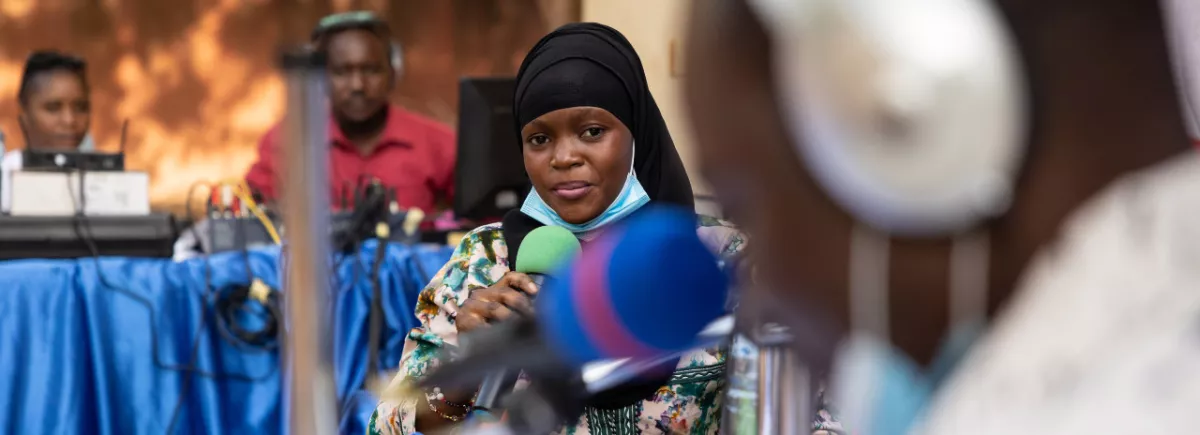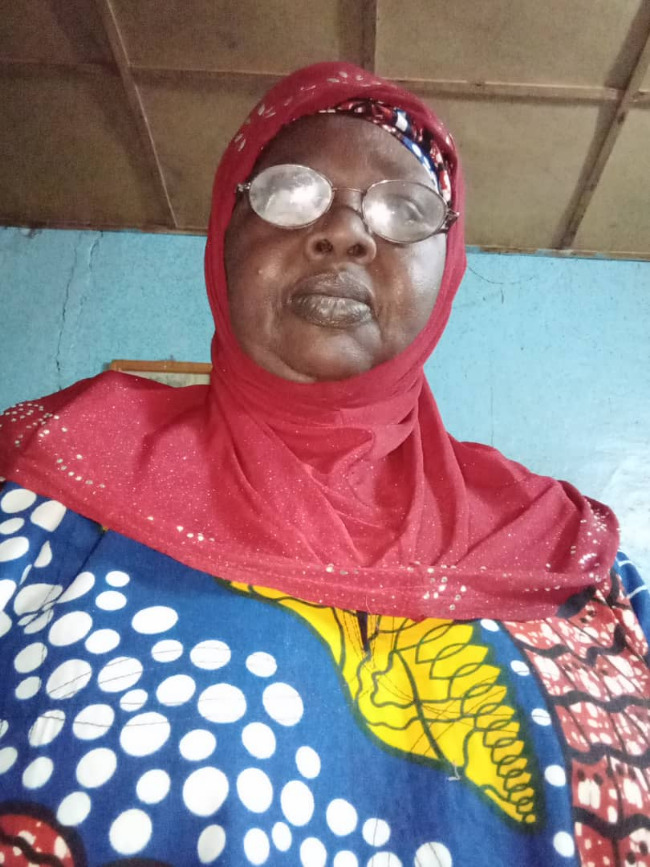
Progress made in the consideration of gender issues by African radio stations, but there is still more work to be done!
Related project
MediaSahelZara Maina is a retired journalist and an expert on gender issues. A former President of the Association des Professionnelles Africaines de la Communication (Association for Professional African Women in Communication [APAC]) working for the Niger chapter, she is also a MediaSahel trainer. She campaigns for gender inclusion within Niger’s local media.
Why does gender interest you as a topic?
Zara Maina : Gender started to interest me after I got involved with APAC. This association of women working in media is aiming to cast female media professionals in a better light by shattering the stereotypes subconsciously perpetuated by men and women.
What is the state of play for women in Niger?
Zara Maina : There is a chasm between what Niger supports in its national doctrine and laws on women’s rights and what is really happening. Traditions and customs dictate family life matters, which prevents women from flourishing. These often contradict law and even Islam itself and win out over religion, despite its influential role. Women are deprived of owning their allocation of land as granted by the Qur’an, for example.
Do media outlets take gender into consideration?
Zara Maina : We are noticing that things are changing. Although progress has undoubtedly been made in many areas, coordinating the efforts made by government, women’s organisations and technical and financial partners is proving to be an ongoing challenge. We have worked together with UN Women and developed a charter designed to improve the image of women in the media. This charter aims to tackle discrimination against women in media workspaces. It is our way of recognising the right of every group in society to voice its opinion on Niger’s developmental issues.
What have you accomplished as part of the MediaSahel project?
Zara Maina : Gender-and conflict-sensitive journalism training has been provided to male and female radio hosts and station managers. These managers were fully on board after the training was over and together we created a gender-focused code of conduct which is now prominently displayed at the entrance of each studio.
In addition to this, MediaSahel’s trainers closely follow how things are playing out in the media. We are in contact with the radio stations and measure their responsiveness to gender equality using several criteria, such as the number of women in leadership positions or whether or not women’s concerns are being covered in their output. We are interested in discovering the gender of a show’s host and whether female experts are being invited on as guests.
MédiaSahel is going to expand MediaSahel for Women, the gender-oriented part of the project. What are your expectations surrounding this?
Zara Maina : We expect men and women working in the media to become more capable of stepping up the battle against sexist stereotypes and improving the perception of women. A perception that reflects the contribution made by women to socio-economic life in the country.



